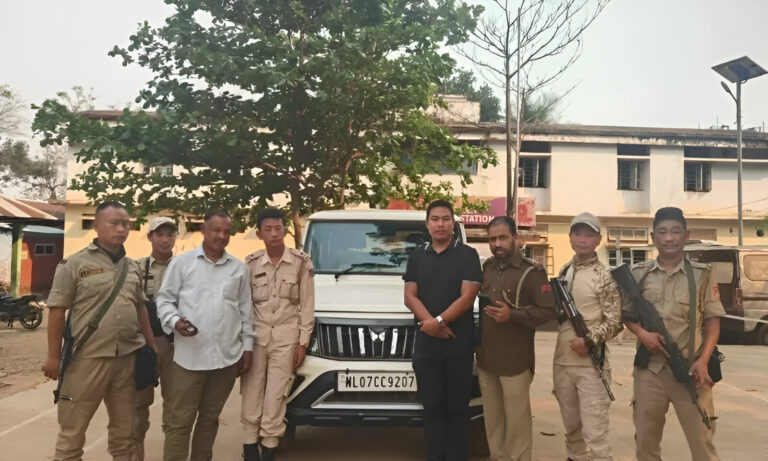PICK Demands Military Crackdown on Kuki Militants: A Detailed Overview
Summary
The People’s Indigenous Council of Manipur (PICK) has urged the Indian government to take decisive military action against Kuki militants. Accusing the groups of violating ceasefire agreements and engaging in violent activities, PICK and allied organizations argue that restoring peace in Manipur requires strong measures, including disarming these groups and addressing the rising tension between communities in the state
Long Article
Understanding the Conflict in Manipur
Manipur, a northeastern state of India, has witnessed decades of ethnic and communal strife. At the heart of the current crisis lies the tension between the indigenous Meitei and Kuki communities. This conflict has deep roots in historical grievances, land disputes, and perceived inequities in governance and resource allocation.
The situation escalated dramatically in recent months, with allegations of militant activity disrupting the fragile peace in the state. The Kuki militants, some reportedly armed with sophisticated weapons, have been accused of targeting civilians and undermining local law enforcement
PICK’s Demands and Concerns
The People’s Indigenous Council of Manipur (PICK), representing Meitei interests, has become vocal in its criticism of both state and central governments. Their demands include:
- Military Crackdown: A robust operation against Kuki militants, who PICK accuses of violating the Suspension of Operations (SoO) agreement—a ceasefire arrangement between certain insurgent groups and the government.
- Withdrawal of SoO Agreement: Citing frequent breaches, PICK and other Meitei organizations argue that the agreement has failed to ensure peace and has instead emboldened militant groups.
- Enhanced Border Security: Given the proximity to Myanmar, PICK calls for tighter control along the international border to prevent cross-border infiltration by armed groups
The Role of the Government
The central and state governments have faced criticism for their handling of the crisis. Some organizations allege a lack of decisive action, while others accuse authorities of biased interventions. For instance, the Shiv Sena’s Manipur unit has questioned the silence over alleged involvement of Myanmarese-speaking Kuki militants in the violence
.
The government has deployed additional forces to the region, but these measures have been deemed inadequate by local communities. There is growing frustration over the continued violence, with many accusing central forces of failing to protect vulnerable areas.
Consequences for Civilians
The ongoing violence has taken a severe toll on the people of Manipur:
- Loss of Life: Numerous civilians, including entire families, have been killed in attacks attributed to militants.
- Displacement: Thousands have been forced to flee their homes, seeking shelter in relief camps.
- Economic Disruption: The conflict has paralyzed local economies, with roadblocks and curfews impacting trade and daily life
Ethnic Tensions and Historical Context
The Meitei community, predominantly settled in the Imphal Valley, has long harbored concerns over land encroachments and demographic shifts. On the other hand, the Kukis, who mainly inhabit the hill areas, assert their right to autonomy and accuse the state of systemic neglect.
These grievances have created a volatile environment, where any perceived provocation can escalate into widespread violence. The demand for constitutional safeguards, such as Scheduled Tribe status for the Meitei, further complicates the situation
.
Way Forward
To address the crisis, experts and activists suggest a multi-pronged approach:
- Dialogue and Reconciliation: Engaging all stakeholders in meaningful discussions to bridge the trust deficit.
- Strict Law Enforcement: Targeted actions against militant groups while ensuring no harm to civilians.
- Socioeconomic Development: Addressing the root causes of conflict by investing in education, healthcare, and infrastructure in marginalized areas.
The Role of Civil Society
Local organizations and community leaders have a critical role in fostering peace. Initiatives like community dialogues, awareness campaigns, and grassroots mediation can complement government efforts to stabilize the region.
FAQs
1. What is the Suspension of Operations (SoO) agreement?
The SoO is a ceasefire agreement between the government and certain insurgent groups, aimed at creating conditions for peaceful dialogue. However, alleged violations have raised questions about its efficacy.
2. Why is there tension between the Meitei and Kuki communities?
The tensions stem from historical disputes over land, resource allocation, and political representation. Recent violence has deepened these divides.
3. What steps has the government taken to address the conflict?
The government has deployed additional security forces and initiated talks with various stakeholders. However, critics argue that these measures have been insufficient.
4. How has the conflict affected civilians?
Civilians have faced violence, displacement, and economic hardship. Many have sought refuge in relief camps, fearing for their safety.
5. What are PICK’s main demands?
PICK calls for a military crackdown on Kuki militants, withdrawal of the SoO agreement, and tighter border controls to curb militant activities.
